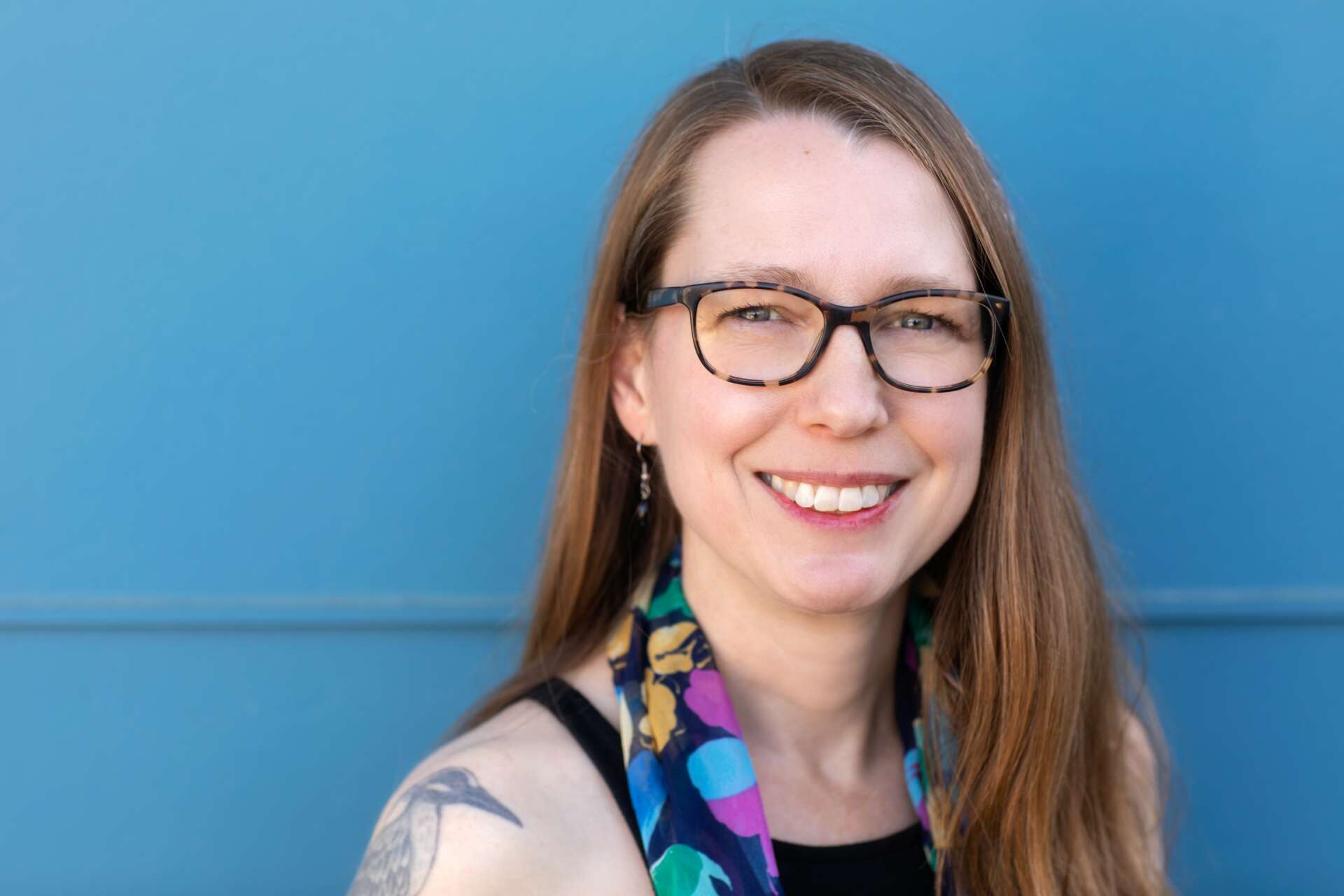Alright – so today we’ve got the honor of introducing you to Danielle Hanson. We think you’ll enjoy our conversation, we’ve shared it below.
Alright, Danielle thanks for taking the time to share your stories and insights with us today. We’d love to hear about a project that you’ve worked on that’s meant a lot to you.
Recently, I’ve been curating a lot. That includes editing, creating and teaching classes, pitching anthologies, producing structures for creation. . .
I’ve had a lot of changes in my life in the last couple years. My husband became Dean of Engineering at UC Irvine and moved to California. Our twin daughters were about to enter their senior year at the Atlanta Girls’ School so I stayed in Atlanta with them. Now they’ve gone to college and I’m splitting my time between Atlanta, where my creative base and contacts live, and Irvine, where my husband and part-time teaching job are. With so many changes, and coming after the turbulence of Covid shutdowns, it’s been difficult to create. My brain is solving problems and reacting, not being introspective and generative. But I believe in careers and lives that shift and change focus according to the needs and wishes of the time.
I spent the summer developing the kind of creative writing class I loved as an undergrad, and it’s going really well. I have students staying after class for an hour to continue discussing poetry, and reaching out for input on their writing outside of class. And instead of choosing one of the writing assignments in a list, I have kids doing ALL of them by choice. I love interacting with the students and sharing my passion of poetry with them. It reminds me of how I started writing.
I also have a few ideas for poetry anthologies that I’m pitching to various publishers. Collecting work using a specific lens, such as poetry from a certain tradition or about a certain subject, is a fun way to play with writing. I’ll also be editing a book for Doubleback Books early next year, a collection of poems from a single poet. It’s such a delight to work closely with a poet in polishing their collection and bringing it to readers. Editing and translation are two ways to work inside someone else’s voice and process for a time–like acting in a play. You learn through deep empathy with another voice. Along those lines, I’ve been editing a book of critical analysis and interviews with a wonderful Indian poet, Susheel Kumar Sharma, for a press in Delhi. That’s a new way for me to deeply connect with another poet’s work and process. I’ve found it to be very rewarding.
I’ve also entered into partnerships with a couple of artists in which we challenge each other to create around a specific image or topic, one through Arts Beacon in Atlanta and one with a neighbor, artist Mark Leibert. These partnerships have been great for spurring new poems. You have accountability toward your creative partner, and some direction to bring to the blank page.
And lastly, I’ve recently stepped into a larger volunteer role with Sundress Press, joining their Editorial Board and serving as their Marketing Director. I love helping to bring new voices and perspectives to our readers, and mentoring poets in how to reach their audiences. What a wonderful thing to help writers showcase their new books–it’s such a monumental accomplishment. I’ve worked with Sundress in other roles for several years now and am proud of the work they do. The writers they publish are vivid, diverse, and powerful. I’m teaching many of them in my class.
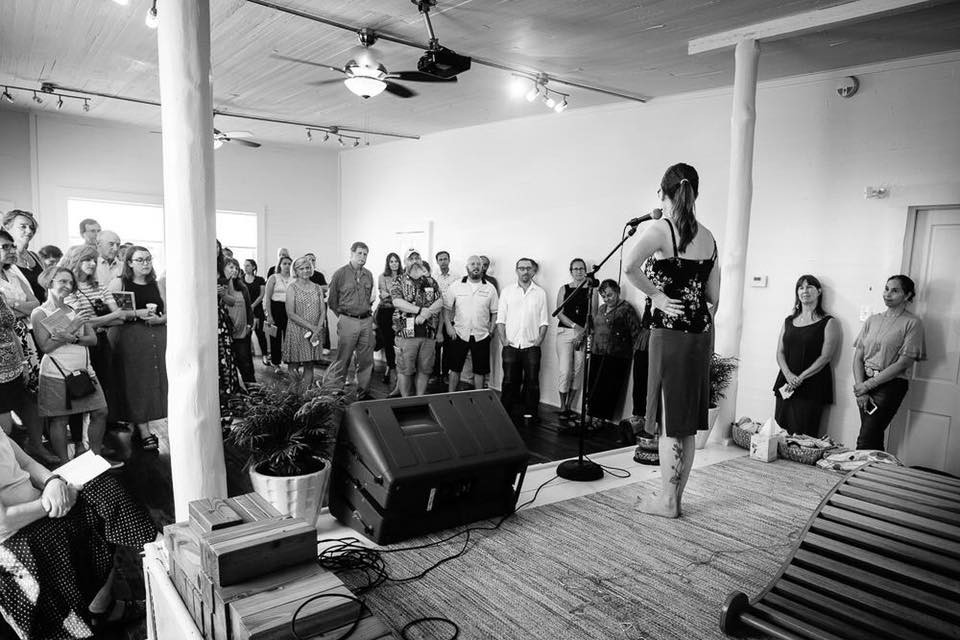
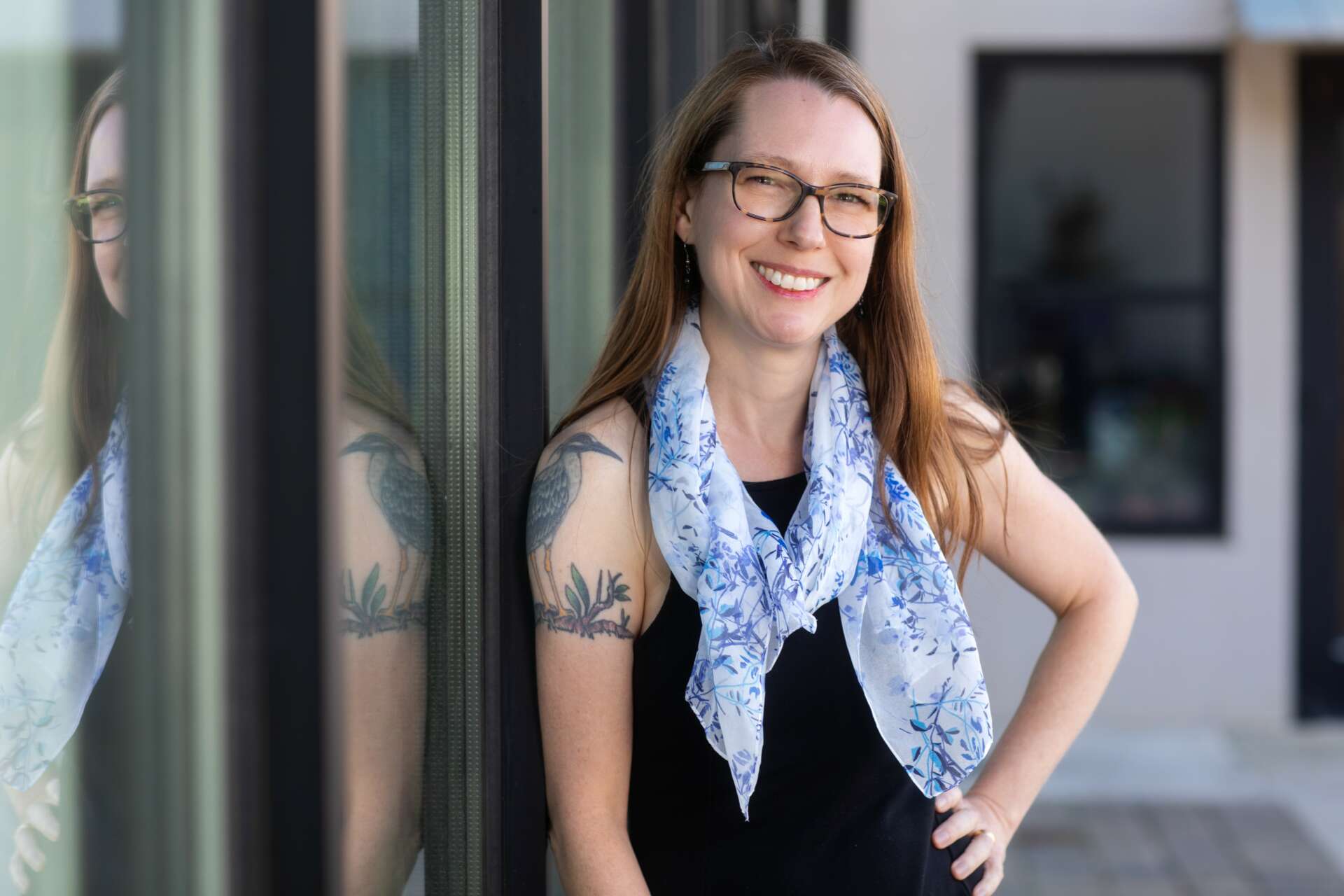

Awesome – so before we get into the rest of our questions, can you briefly introduce yourself to our readers.
I’m a poet who strives to create and facilitate wonder. I want to surprise and delight the reader. One of the many things art can do is to bring you to a better place in your mind, allow you to dream and relax, get you into a space of creativity. I hope I can do that occasionally for a reader. What am I most proud of? That’s a lovely question. The time a neighbor yelled to me as I was walking by, “I got your book yesterday. Thanks for making me think weird thoughts.” Or the man who wrote to me after a reading saying he enjoyed it, that he bought my book. He takes care of his father with Alzheimers after his full-time job, and he takes a small break every day to read a single poem. He might be the most important reader I’ve ever had. I’m so touched that I can provide a moment of rest for someone who needs it. Or another man who read a poem I wrote about a man who had lost his wife and asked me how I knew and started crying. I didn’t know. I wrote that poem as someone who hadn’t lost anyone close to me. But sometimes you get it right in your ignorance when you’re sincere. I sincerely want to connect with the reader in our shared humanity. I’m proud when that can happen.
Can you tell us about a time you’ve had to pivot?
Absolutely. I never assumed I’d make a living writing poetry–I’m not sure anyone ever has succeeded in that. If you don’t have a patron (I’m looking at you, Petrarch), or are independently wealthy (LORD Byron, did you say?), you probably need a day job. A lot of writers teach, but not all of us do. I spent my first 15+ years after graduate school working in corporations, mainly AT&T and mainly in Marketing. I enjoyed the work and it didn’t drain too much of my creative energy. It gave me an identity to be proud of when the rejections came in fast and heavy. But after a while, I had met my career goals and my learning curve at my job was slowing down. Instead of inspiring and supporting my creative work, my job became a drain on it. My kids were busier and my husband’s job demanded a lot of travel. Luckily, that job could also support me and ta-da! I had a patron for my writing in my house (well, the savings from my job helped too, so I was also my own patron, I guess).
So I quit my paying job. After I turned in my notice, but before my last day, my first book was picked up by a publisher–after years of submitting it. The timing was perfect. And the skills I had learned in my Marketing job helped me promote my work, and develop new projects around my and others’ work. I use those skills to help other writers now too.
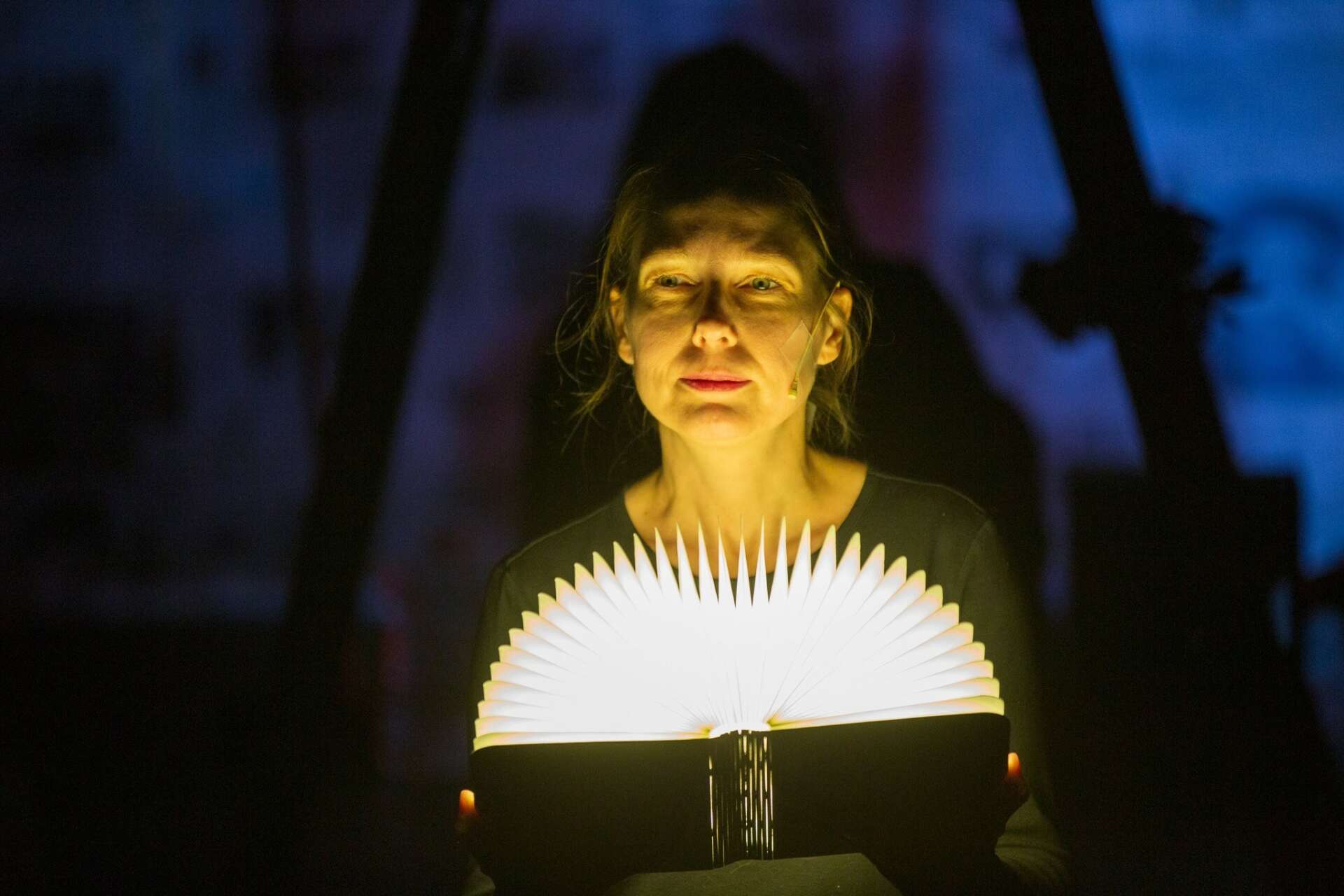
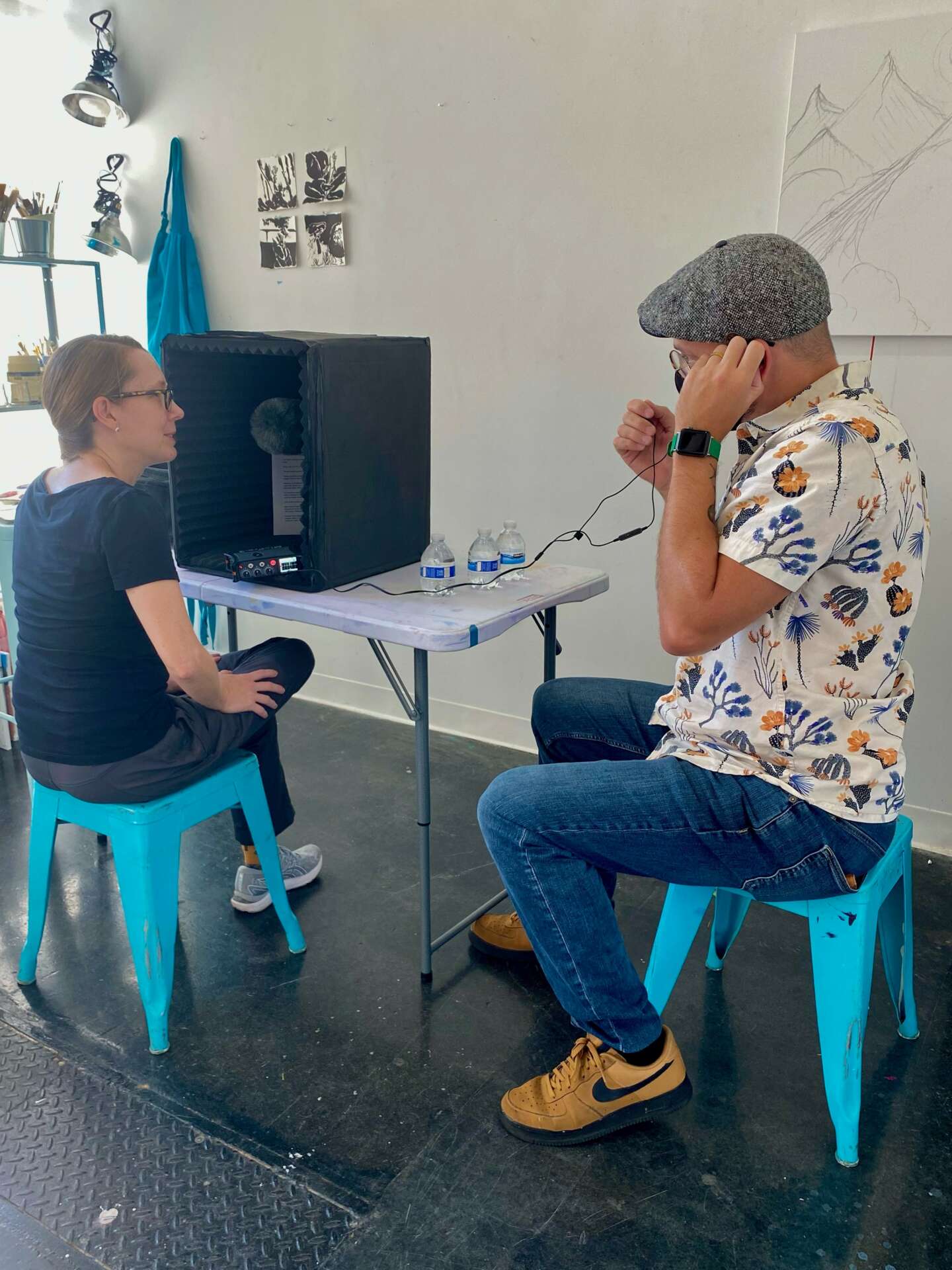

How can we best help foster a strong, supportive environment for artists and creatives?
More money for the arts from public, private, and commercial sources. Arts are vital for a functioning society, and they’re fairly cheap for the benefits. Grants that allow writers without patrons and who are not wealthy to have space and time to create. As a human, buy a book (they’re the same price as a movie ticket and last longer). Give books and art as gifts. When you like something you read, hear, or see, tell the artist. It gets lonely in the room with the page or the studio with the canvas, but hearing that we make a connection makes that room alive.
Contact Info:
- Website: https://www.daniellejhanson.com
- Instagram: @daniellejhanson
- Facebook: danielle.hanson.986
- Linkedin: danielle-hanson-1080222
- Twitter: @daniellejhanson
Image Credits
Kelley Klein, Colin Potts


